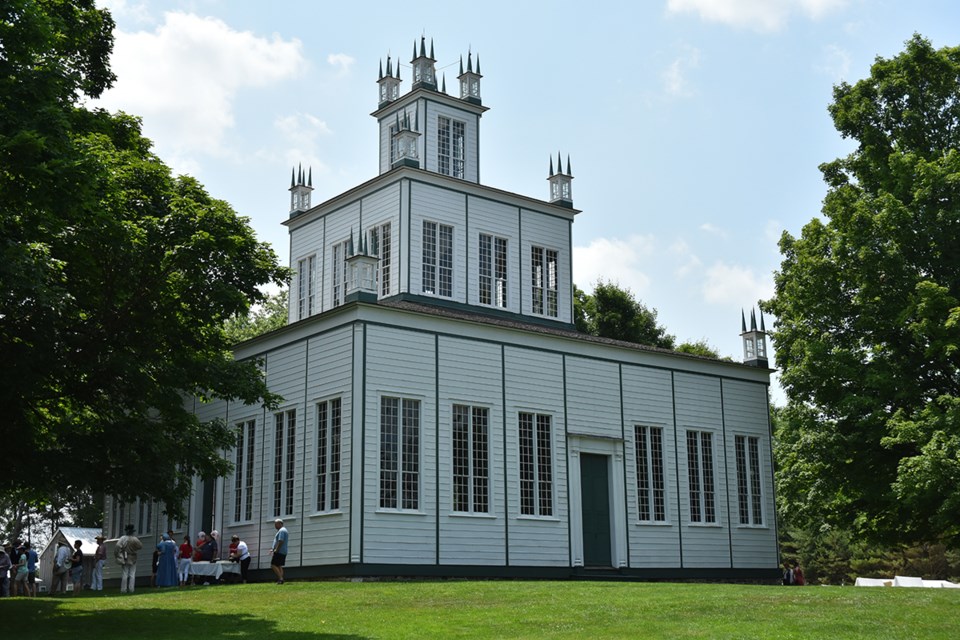When a 200-year-old sugar maple fell to the ground at the Sharon Temple in 2021, many thought that would be the end of the tree.
But Sharon Temple executive director Lori Woodyatt said rather than discarding the tree, it was decided to preserve it in the form of a sculpture on the stump of the fallen tree.
Aided by a grant from Central Counties Tourism, plans were made for a Hope and Truth Reflection Garden, Woodyatt said.
The sculpture, designed by Anishinaabe artist Donald Chrétien and sculptor Shane Clodd, will be unveiled to the public Sept. 8.
At the centre of the garden, the carved sugar maple sculpture will stand as a symbol of reflection and hope. The 12-foot-tall tree has been carved into a female hand, gracefully holding an aluminum feather engraved with Indigenous pictographs.
Plaques in the space will educate visitors about the relationship with local First Nations groups and the importance of preserving and passing down Indigenous knowledge.
“Throughout the design process, we have consulted with the Chippewas of Georgina Island First Nation and appreciate their guidance and wisdom. The garden will feature an arrangement of the four sacred medicines: sweet grass, sage, cedar and tobacco, along with seven stone seats to represent the seven grandfather teachings,” Woodyatt said.
The public is invited to celebrate the completion of the project at a grand opening and sculpture reveal Sept. 8. The free event features an Indigenous vendor market, free samplings of traditional Indigenous food, entertainment and children’s crafts.
The museum hopes that the addition of the Hope and Truth Reflection Garden will serve as a permanent reminder that truth and reconciliation is an on-going process; and that the garden can provide a safe and welcoming space for community members to participate in that process.
